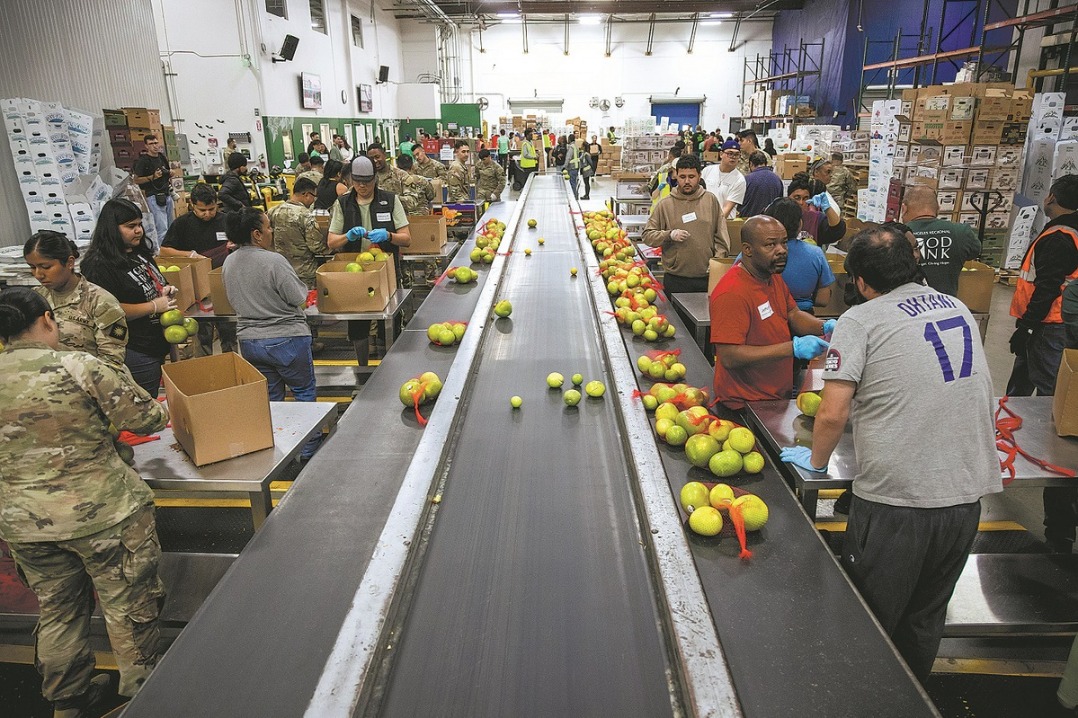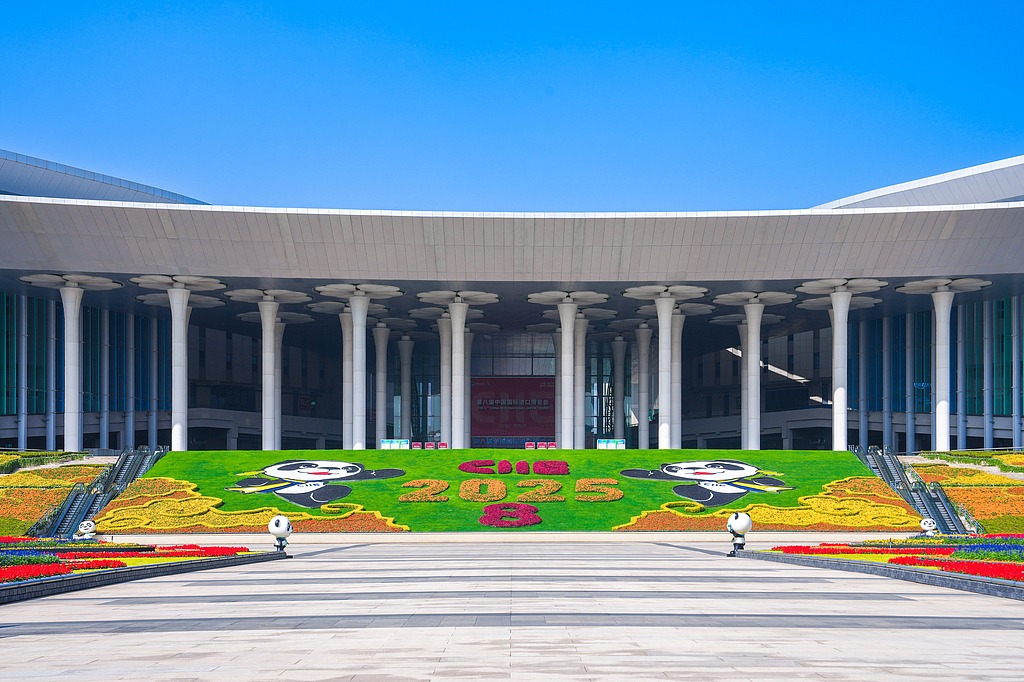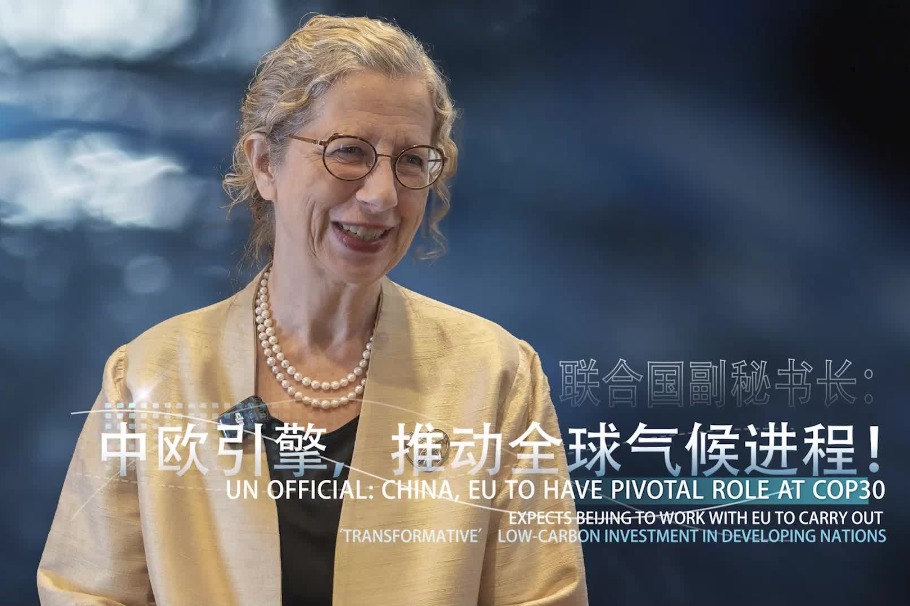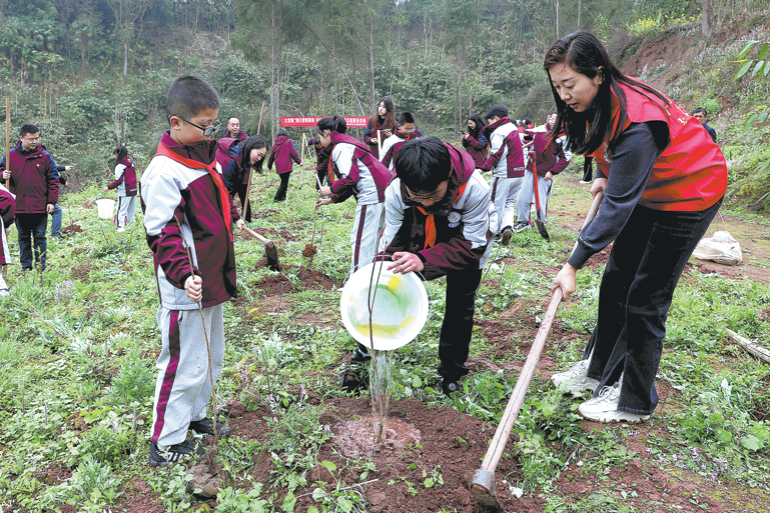Cholera not just a medical challenge


The last outbreak of cholera in the United Kingdom was in 1866; the United States has not had an outbreak since 1911.
And yet today, outbreaks of cholera are raging in 32 countries, with more than 6,800 deaths reported so far this year — already exceeding last year's toll of 6,000 deaths, which was itself a 50 percent increase over 2023.
The most severe outbreaks are in Africa, where in most cases, conflict is accelerating the spread and hampering control efforts.
Cholera persists not for lack of science or solutions, but because leaders have failed to act with the urgency and commitment the crisis demands.
A consortium of more than 50 partners, led by the World Health Organization, is responding to these outbreaks through the Global Task Force on Cholera Control — a partnership established in 1992 that enables access to essential supplies, as well as the detection, prevention and treatment of cholera, informs communities how to protect themselves, and sets global priorities to sustainably control cholera.
Complementing the work of the Task Force, in August WHO and the Africa Centres for Disease Control and Prevention launched a continental cholera emergency preparedness and response plan.
Cholera is the definitive disease of deprivation. It's caused by a bacterium ingested in food or water contaminated with feces from an infected person.
The best and only sustainable way to prevent it is by ensuring access to safe water and sanitation, which is why cholera is now practically unheard of in countries with those facilities, but thrives in communities afflicted by inequality, poverty, conflict, displacement and climate-related disasters.
In communities that lack access to safe water and sanitation, cholera can also be prevented with safe and effective vaccines. The first injectable vaccines were developed in the late 19th century, and have been superseded by oral vaccines, which became available in the 1980s.
But because cholera afflicts almost exclusively the poorest countries and communities, it does not attract investment from vaccine developers, for whom it offers little market opportunity. There is currently only one manufacturer producing cholera vaccines at the scale needed to support mass vaccination campaigns: EuBiologics, based in the Republic of Korea.
To manage the response to cholera outbreaks, WHO and other partners established a global cholera vaccine stockpile for outbreaks in 2013 under the International Coordinating Group (ICG) on Vaccine Provision to ensure rapid, equitable, and effective access to vaccines in emergencies, especially in low-resource settings. Since then, the stockpile has distributed more than 250 million doses of vaccine to 34 countries.
Almost 75 percent of those doses have been distributed since the beginning of 2021, in response to the global resurgence of cholera. So far this year, the stockpile has disbursed more than 49 million doses of vaccine — already eclipsing the previous record for a single year.
Given the increasing frequency and severity of outbreaks, vaccines from the stockpile can only be used to bring outbreaks under control, rather than to conduct preventive campaigns in areas at risk of cholera.
Although the stockpile is replenished every week, production cannot keep up with demand, and the stockpile is regularly below the recommended threshold of 5 million doses needed to respond to outbreaks at any time.
In response, the ICG suspended the standard two-dose vaccination regimen in 2022 in favor of a single dose, to stretch supplies.
This decision was made based on evidence showing that a single dose provides protection against cholera, but that protection wanes faster than a two-dose regimen. Single-dose vaccination is only therefore a temporary solution to maximize the impact of scarce supplies to respond to outbreaks.
Demand shows no sign of abating, which means supply must increase. In October 2024, Zambia signed a Memorandum of Understanding with China's Jijia International Medical Technology Company to establish a cholera vaccine production facility in Lusaka, potentially making Zambia the first African country working towards the manufacture of a cholera vaccine.
The planned vaccine production will still require rigorous quality assurance and clinical trials to confirm safety and efficacy before any locally manufactured doses can be approved by WHO and deployed in mass vaccination campaigns.
While expanding vaccine production in Africa is essential for preventing and responding to outbreaks of this ancient disease, the only long-term solution is for governments to invest in infrastructure for safe water and sanitation.
There are some diseases that cannot be completely prevented, such as Alzheimer's disease and most cancers.
Cholera is not one of them. It can be stopped. Cholera persists because poverty, inequality, conflict and displacement persist.
Stopping it is therefore not fundamentally a scientific, medical or technical challenge; it's a political one.
Hakainde Hichilema is the president of Zambia and global cholera control champion of the Global Task Force on Cholera Control. Tedros Adhanom Ghebreyesus is director-general of the World Health Organization.
The views don't necessarily represent those of China Daily.
If you have a specific expertise, or would like to share your thought about our stories, then send us your writings at opinion@chinadaily.com.cn, and comment@chinadaily.com.cn.


































